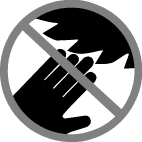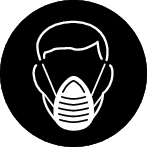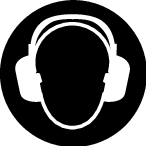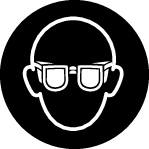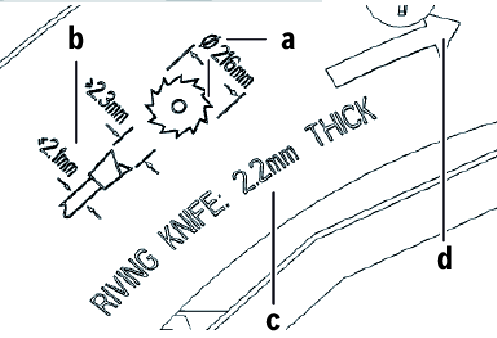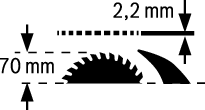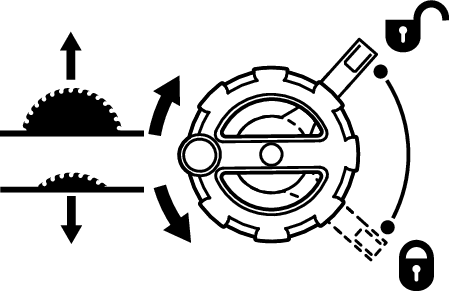Symbols
The following symbols may be important for the operation of your power tool. Please take note of these symbols and their meaning. Correctly interpreting the symbols will help you to operate the power tool more effectively and safely.
Symbols and their meaning | |
|---|---|
| Keep hands away from the cutting area while the power tool is running. Contact with the saw blade can lead to injuries. |
| Wear a dust mask. |
| Wear hearing protection. Exposure to noise can cause hearing loss. |
| Wear safety goggles. |
3 601 M42 001
3 601 M42 0B1
| Observe the dimensions of the saw blade. The hole diameter must fit the tool spindle without play. If it is necessary to use reducers, ensure that the dimensions of the reducer are suitable for the base blade thickness and the saw blade hole diameter, as well as the tool spindle diameter. Wherever possible, use the reducers provided with the saw blade. The saw blade diameter must match the information specified on the symbol. |
| a The saw blade must be no more than 216 mm in diameter. b When changing the saw blade, make sure that the cutting width is no smaller than 2.3 mm and the base blade thickness is no larger than 2.1 mm. Otherwise, there is a risk that the riving knife will hook into the workpiece. c The riving knife is 2.2 mm thick. d The cutting direction of the teeth (direction of the arrow on the saw blade) must match the direction of the arrow on the riving knife. |
| The riving knife is 2.2 mm thick. The maximum possible workpiece height is 70 mm. |
| Left-hand side: Right-hand side: |
| Protection class II power tools are strengthened or double-insulated. |
| The CE mark provides confirmation from the manufacturer that the power tool complies with the applicable EU Directives. |
